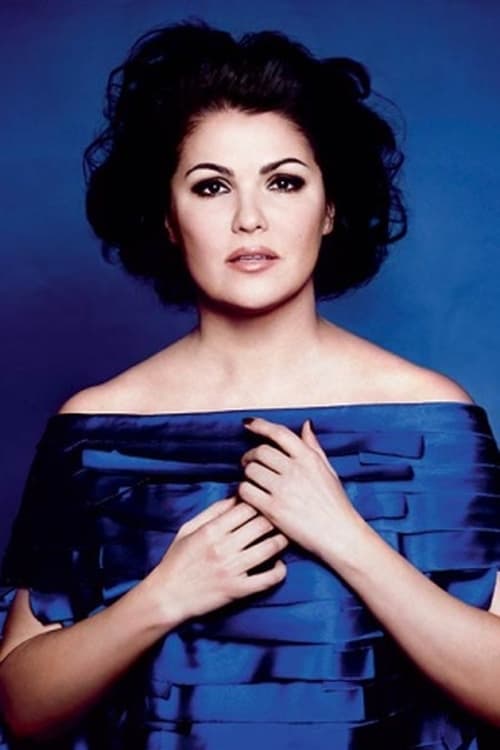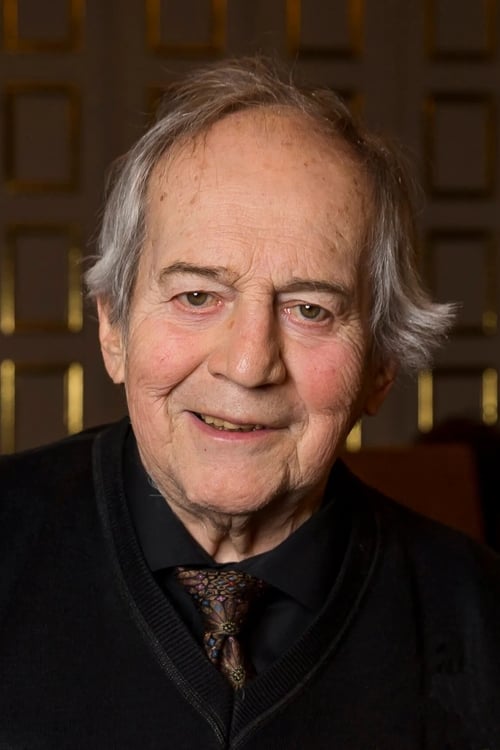Donizetti: L'elisir d'amore (2005)
Vienna State Opera performance of L'elisir d'amore by Donizetti
Género : Música
Tiempo de ejecución : 2H 10M
Director : Otto Schenk
Sinopsis
Donizetti's L'Elisir d'Amore is one of the staples of the comic opera repertory. The plot hinges on whether earnest but dim-witted Nemorino will snag Adina, the flirtatious heroine. She's a tease who takes up with Belcore, an army sergeant, to make Nemorino jealous. After numerous (and humorous) plot twists that include a phony love potion, it all ends happily. Adina and Nemorino declare their love for each other, Belcore is dumped, and the fraudulent Dulcamara does a landslide business in love potions. It's all a fast-moving bundle of fun, especially with the star-filled cast of this 2005 Vienna State Opera performance.
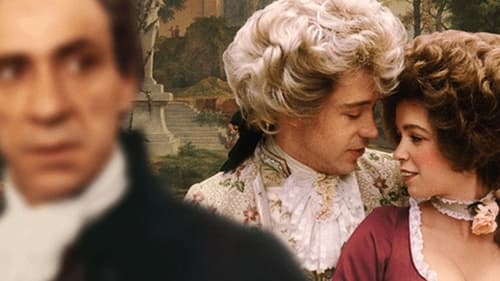
Antonio Salieri es el músico más destacado de la corte del Emperador José II de Austria. Entregado completamente a la música, le promete a Dios humildad y castidad si, a cambio, conserva sus extraordinarias dotes musicales. Pero, después de la llegada a la corte de un joven llamado Wolfang Amadeus Mozart, Salieri queda relegado a un segundo plano. Irritado por la pérdida de protagonismo, hará todo lo posible para arruinar la carrera del joven músico. Mientras tanto, Mozart, ajeno a las maquinaciones de Salieri, sorprende a todos con su genialidad como músico, pero también con sus excentricidades.
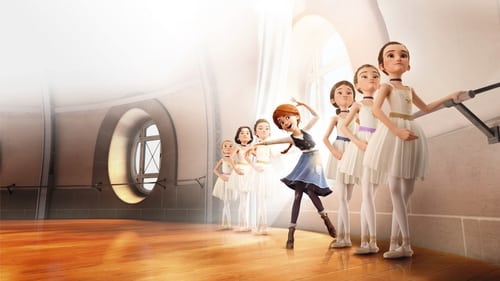
Felicia es una niña que, tras perder a sus padres, vive en un orfanato en su Bretaña natal. Su pasión es la danza y sueña con convertirse en una bailarina profesional. Para conseguirlo se escapa con la ayuda de su amigo Víctor y viaja hasta el París de 1879. Allí se hará pasar por otra persona para conseguir entrar como alumna de la Grand Opera House y así luchar por tener la vida que desea.
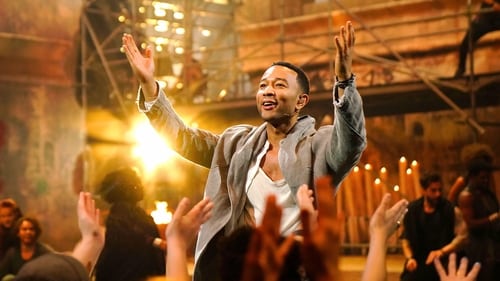
Un musical en vivo que narra los últimos días de Jesucristo y de quienes lo rodean.
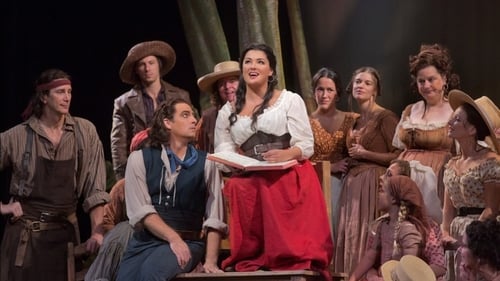
Anna Netrebko as the beautiful and wealthy Adina leads the cast in Barlett Sher’s production of Donizetti’s charming comedy, first seen on Opening Night of the Met’s 2012–13 season. Matthew Polenzani is Nemorino, the poor but good-hearted country boy who wins her love—with the help of the magic “elixir” sold by the quack Dulcamara, played by Ambrogio Maestri. Mariusz Kwiecien is the swaggering Sergeant Belcore and Maurizio Benini conducts.

Narra la historia real de Florence Foster Jenkins, una mujer que, al heredar la fortuna de su padre, pudo cumplir su sueño de estudiar para ser soprano. El problema era que carecía de talento, pero la gente acudía a sus recitales para comprobar si de verdad era tan mala cantante como decían los críticos.
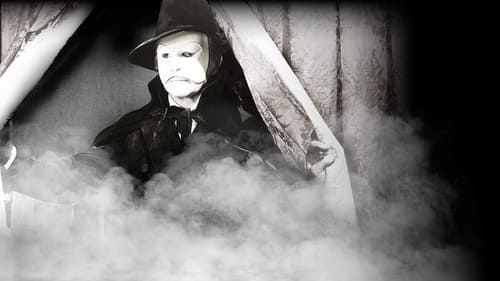
Un violinista de la Ópera de París, locamente enamorado de Christine Dubois, una joven aspirante a soprano, es despedido porque su mano izquierda ya no es tan hábil como antes. Solo y sin dinero, después de haberlo gastado todo en pagar -sin que ella lo sepa- las lecciones de canto de Christine, decide publicar un concierto con el fin de completar la instrucción de la soprano y de hacerse famoso. Pero, a causa de un malentendido, ataca a su editor, y la secretaria de éste le desfigura el rostro con ácido. Se refugia entonces en los sótanos de la Ópera y, desde entonces, actúa como un fantasma cuya sombra amenazadora acecha en la sombra y siembra el pánico entre el público.

Segunda Guerra Mundial (1939-1945). Parodia de la ocupación de Francia por los alemanes. Terry-Thomas es un piloto inglés que se encuentra perdido en la Francia ocupada, mientras que Bourvil y Louis de Funès son dos parisinos que, casi involuntariamente, ayudan a la resistencia contra los nazis. Un film que en Francia obtuvo un enorme éxito de taquilla.

Sir David McVicar’s bold new staging of Tosca, Puccini’s operatic thriller of Napoleonic Rome, thrilled Met audiences when it rang in the New Year in 2018. Only weeks later, the production was seen by opera lovers worldwide as part of the Met’s Live in HD series of cinema presentations. In this performance, Bulgarian soprano Sonya Yoncheva is the passionate title diva, opposite charismatic tenor Vittorio Grigolo as her lover, the idealistic painter Mario Cavaradossi. Baritone Željko Lučić is the menacing Baron Scarpia, the evil chief of police who employs brutal tactics to ensnare both criminals and sexual conquests. On the podium, Emmanuel Villaume conducts the electrifying score, which features some of Puccini’s most memorable melodies.
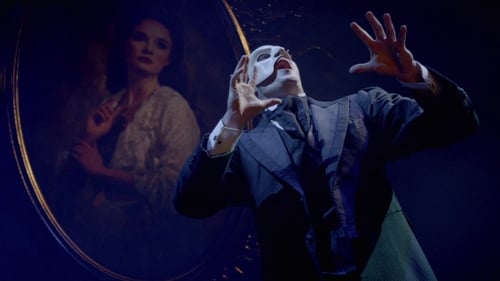
La excelencia compositiva de Andrew Lloyd Weber vuelve a deleitarnos con una nueva obra musical considerada la secuela de la célebre 'El fantasma de la ópera'. La hermosa y talentosa Christine Daaé y el misterioso enmascarado, se reencuentran.
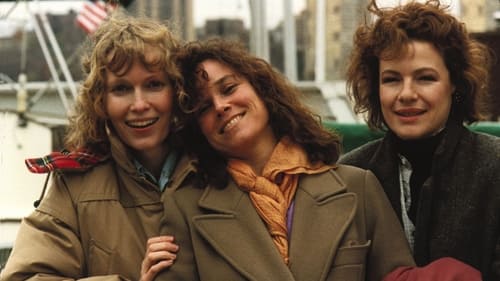
La hija mayor de una pareja de artistas, Hannah, es una esposa devota, madre cariñosa y actriz de éxito. Defensora leal de sus dos hermanas, Lee y Holly, es también la columna vertebral de una familia que parece casi tan resentida de su estabilidad como depende de ella. Pero cuando la rivalidad fraternal sabotea silenciosamente el mundo perfecto de Hannah, finalmente se da cuenta de que está tan perdida como todos los demás, y para ser capaz de encontrarse tendrá que elegir entre la independencia y... la familia sin la cual no puede vivir.
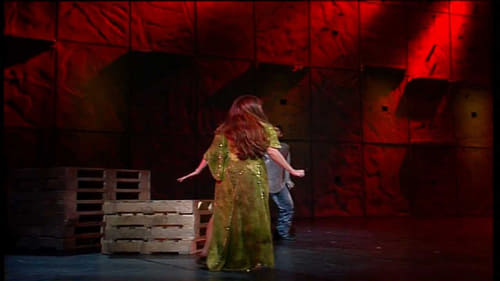
Adaptación musical de la novela de Victor Hugo "Notre Dame de París", que sigue a la bailarina gitana Esmeralda y a los tres hombres que compiten por su amor.
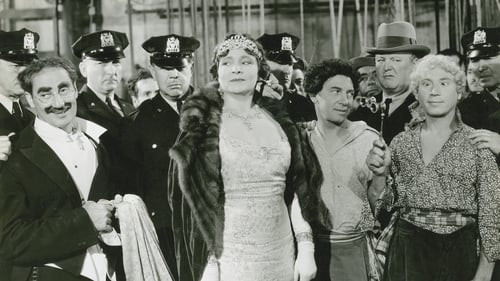
Los Hermanos Marx en la alta sociedad. A dos amantes que actúan en la ópera se les impide estar juntos porque no aceptan al hombre como tenor. Utilizando varios trucos típicos de los Hermanos Marx, logran que el tenor principal se ausente, y de esta manera el joven amante tendrá su oportunidad.
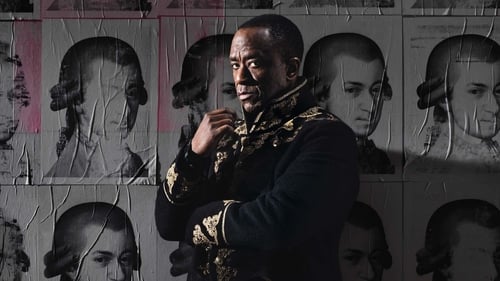
Wolfgang Amadeus Mozart, a rowdy young prodigy, arrives in Vienna, the music capital of the world – and he’s determined to make a splash. Awestruck by his genius, court composer Antonio Salieri has the power to promote his talent or destroy his name. Seized by obsessive jealousy he begins a war with Mozart, with music, and ultimately, with God.
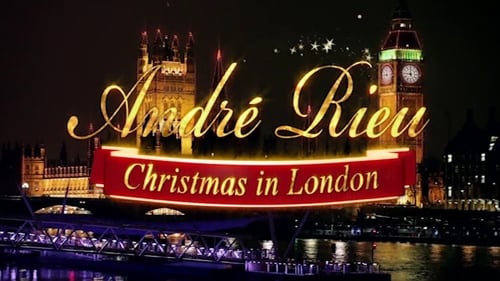
¡La Navidad es ahora más hermosa y acogedora que nunca! Vive la Navidad en Londres junto a André Rieu. Árboles de Navidad decorados por donde mires, calles bellamente iluminadas, tentadores escaparates navideños ... Combina el ambiente navideño único de Londres con un magnífico concierto navideño de André Rieu y tendrás todos los ingredientes para una fiesta encantadora en los oscuros días de diciembre. Junto a fantásticos solistas y su siempre alegre orquesta de Johann Strauss, André Rieu ofrece una velada fabulosa con los villancicos más bellos y conmovedores, pero también con canciones emotivas como Hallelujah, The Holy City de Leonard Cohen y el clásico Concierto de Aranjuez. Navidad en Londres significa una velada disfrutando de música encantadora, hermosos disfraces y mucha intimidad londinense.

In the depths of the Rhine, the three Rhinemaidens guard the Rhinegold, a treasure of immeasurable value. The Nibelung dwarf Alberich is dazzled by the sight of it. The girls explain that whoever wins the gold and forges it into a ring will gain power over the world, but must first renounce love. Frustrated by his unsuccessful attempts to catch one of the girls, Alberich curses love and steals the gold. Wotan, lord of the gods, is reproached by his wife Fricka: he has promised to give Freia, goddess of youth, to the giants Fasolt and Fafner in return for their building a fortress for the gods. When the giants demand their reward, Loge, the god of fire, suggests an alternative payment: the ring Alberich has forged from the Rhinegold, and his other treasures. The giants agree, and Wotan and Loge leave for the Nibelungs’ underground home.

La traviata (Italian: [la traˈviaːta], "The Fallen Woman"[1][2]) is an opera in three acts by Giuseppe Verdi set to an Italian libretto by Francesco Maria Piave. It is based on La dame aux Camélias (1852), a play adapted from the novel by Alexandre Dumas, fils. The opera was originally entitled Violetta, after the main character. It was first performed on 6 March 1853 at the La Fenice opera house in Venice. Piave and Verdi wanted to follow Dumas in giving the opera a contemporary setting, but the authorities at La Fenice insisted that it be set in the past, "c. 1700". It was not until the 1880s that the composer and librettist's original wishes were carried out and "realistic" productions were staged.[3]
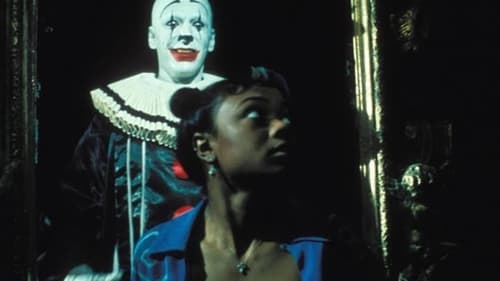
La diva Lorraine Sedwick es brutalmente asesinada por su amante, el famoso tenor Lorenzo Orsini, pero el crimen queda sin resolver. Quince años más tarde, una serie de terribles pesadillas torturan a Kate, la hija de Lorraine, por lo que decide visitar con su amiga Mónica el escenario del crimen. Cuando el dueño del teatro en que trabajaba su madre le revela que el local está habitado por el fantasma de Orsini, Kate vuelve a tener una terrorífica pesadilla.
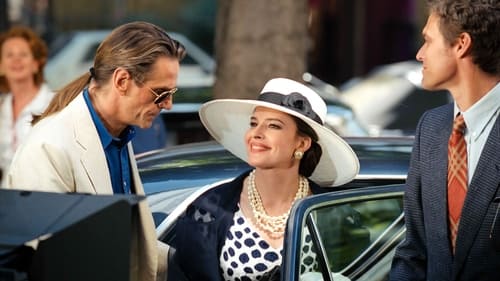
La cinta hace una invención de los últimos meses de la Gran Diva de la ópera,... retirada en su apartamento de Paris, hasta que un representante musical: Larry Nelly (Jeremy Irons) con el que antaño había trabajado, le propone una nueva aparición estelar. Franco Zeffirelli recrea un ambiente en el que Fanny Ardant demuestra su calidad interpretativa, rodeada de jóvenes como Jay Rodan y el modelo Gabriel Garko muy del estilo Pasolini.
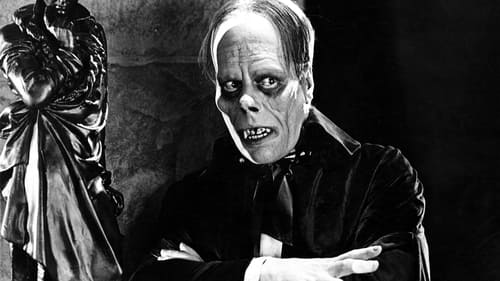
En los sótanos de la Ópera de París vive oculto el misterioso Eric, el hombre de voz de ángel y rostro desfigurado de demonio, que acecha entre pared y pared a la hermosa soprano Christine Daeé, a la que desea catapultar hasta la cima de la fama; pero cuando se entera de que la cantante está prometida al apuesto vizconde Raoul, se vuelve loco de celos.

Philip Glass’ opera “Akhnaten”, premiered in Stuttgart in 1984, forms the third part of the portrait opera trilogy about personalities who have influenced the course of human history. The conclusion of the trilogy deals with the ancient Egyptian pharaoh Akhenaten, who attempted to establish a kind of monotheistic cult around the god Aton during his reign in the 14th century BC, but failed due to the resistance of the priesthood. The production presented here was undoubtedly one of the very great successes of the 2019/20 season at New York’s Metropolitan Opera, due not only to the outstanding cast of singers (led by countertenor Anthony Roth Costanzo) but also to Phelim McDermott’s imaginative staging, which captivates with sometimes breathtaking imagery.
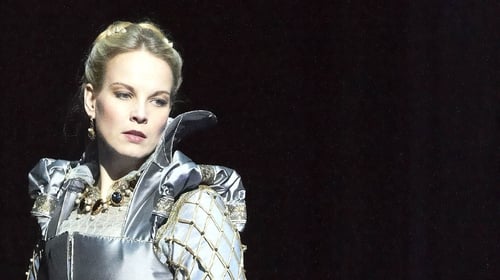
Gaetano Donizetti and his librettist Felice Romani kept the focus of their opera ANNA BOLENA on the personal rather than the political in this fictionalized Tudor tale: Henry VIII of England wants to get rid of his second wife, Anne Boleyn, so that he can marry her lady-in-waiting, Jane Seymour. He brings Lord Richard Percy, Anne's first love, back from exile so that he can find an excuse to accuse her of adultery. With the unwitting aid of Smeaton, a court musician, and Lord Rochefort, Anne's brother, the trap is easily sprung. This 2011 live recording from the Wiener Staatsoper showcases Anna Netrebko as she "scored a personal triumph" in her debut as the hapless Tudor Queen, while her stage partners - notably Elīna Garanča as Jane Seymour and Ildebrando D'Arcangelo as Henry VIII - were likewise showered with critical acclaim.
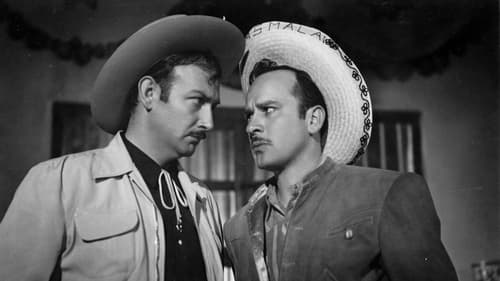
Dos amigos rancheros están enamorados de dos jovencitas del pueblo. Pedro ama a María, hermana de Jorge, quien está enamorado de Rosario, la hija de un abonero árabe. Jorge tiene que irse del pueblo y al regresar un año después encuentra a Pedro casado con Rosario. Despechado, Jorge trata de arruinar a su ex-amigo y rival sin sospechar que todo el embrollo es producto de la nobleza de Pedro.

This spectacular opera film was taped in 1967 and is based on the 1966 Salzburg Festival production directed by Herbert von Karajan himself, who also conducts the fabulous Vienna Philharmonic Orchestra. The production features the three greatest exponents of their respective roles at the time: Grace Bumbry’s magnificently seductive-toned Carmen, Mirella Freni’s ineffably lovely, touching Micaëla and Jon Vickers’s thrillingly manic-depressive Don José. On its release the film was hailed by Die Presse, (Vienna) as a “unique artistic event”, while Le Monde felt that Karajan’s production brought “a whole new dimension” to the opera, “combined with a magisterial interpretation”. A classical and utterly dramatic approach to probably the world's most beloved opera – Karajan’s Carmen is as much a delicacy for opera fans as it is a perfect starter for newcomers.

